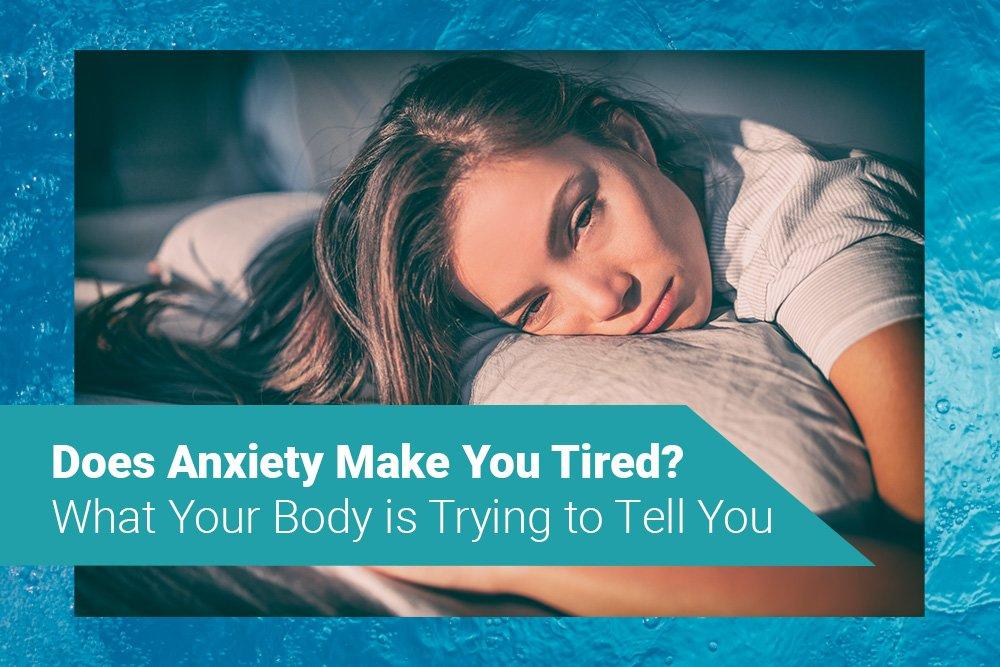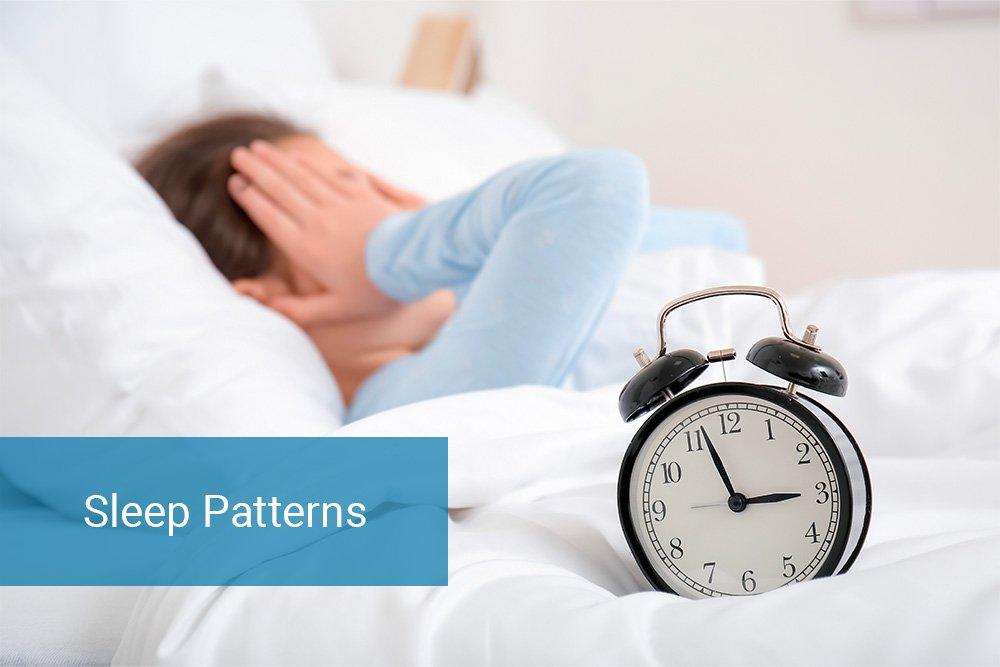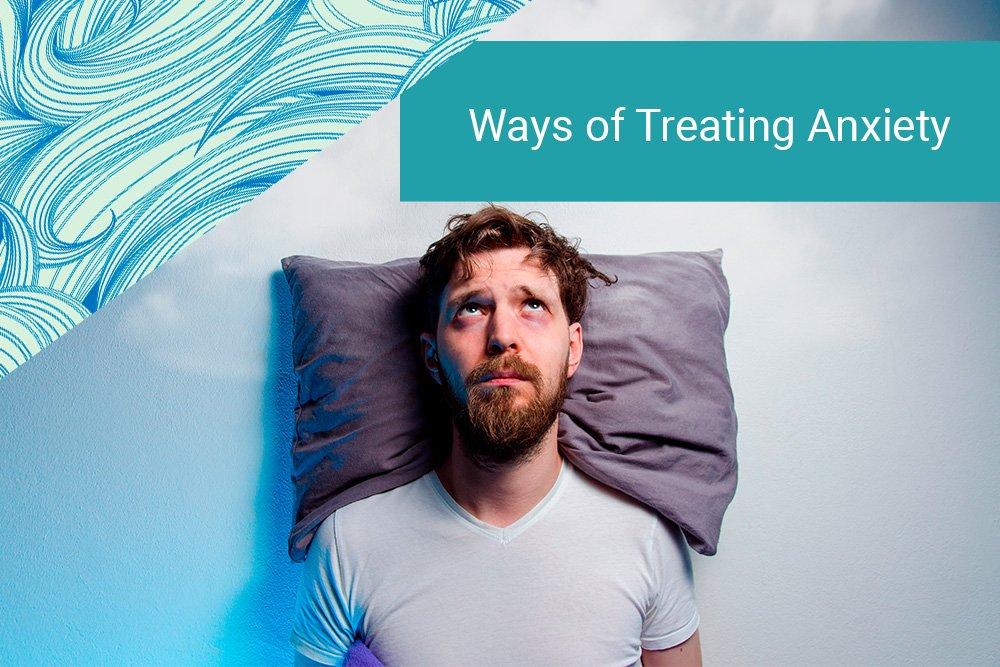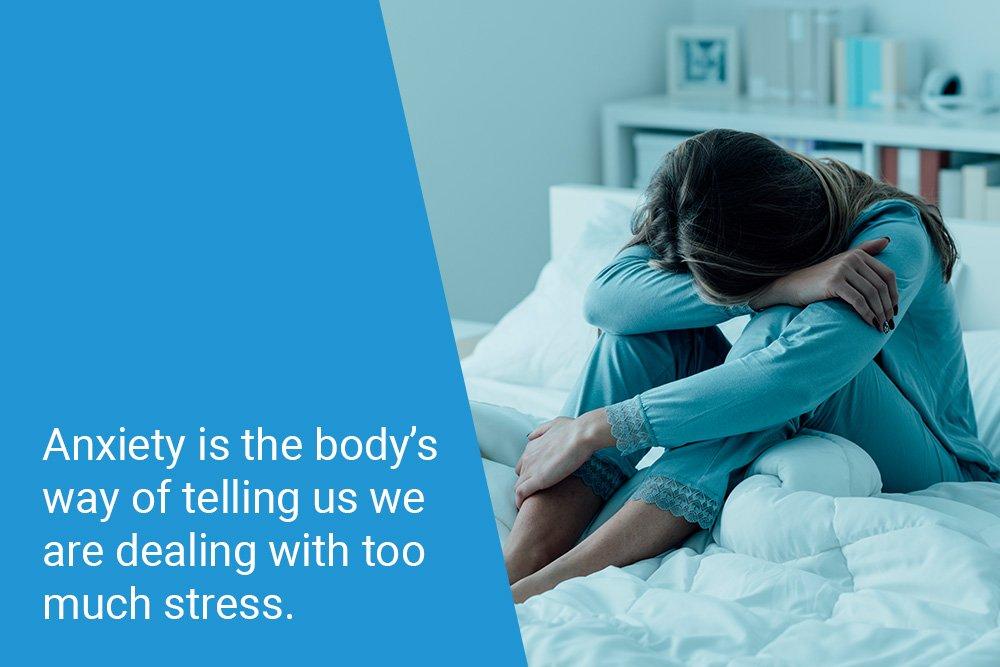
Everyone experiences some form of anxiety from time to time over work, school, and family issues. However, anxiety can result in various degrees of depression as well as lead to mental and physical fatigue. There are several reasons why people experiencing anxiety are prone to feeling tired, and anxiety can lead to complete physical exhaustion and mental burnout in severe cases.
Anxiety leads to other health issues because it can affect your mental alertness, sleep, and eating habits. The exhaustion caused by anxiety can result in even more severe anxiety and health issues like depression. While long-term anxiety is most often responsible for causing secondary issues, even minor short-term anxiety can result in complications and even weaken the immune system. This is why it is crucial to understand what your body is trying to tell you and know the best ways to relieve stress.
The science of how anxiety and fatigue are related is relatively simple. Anxiety is a feeling of apprehension or fear caused by a stressful event and your concern over the event. Fatigue is persistently feeling of being either mentally or physically exhausted, causing you to feel like you have no energy, strength, or motivation. When people feel anxious, they typically experience the physical symptoms of increased heart and respiratory rates along with muscle tension. This leads to the production of adrenaline and cortisol. Scientifically known as epinephrine, adrenaline is both a hormone and a neurotransmitter, and cortisol is a stress hormone. This hormone prepares the body for what is known as the “flight or fight” response, which occurs when the brain perceives a threat. However, when the threat doesn’t come about, and the body cannot burn off these substances, the body tends to crash. If the anxiety is ongoing, these hormones build up and can cause increased anxiety that can weaken the immune system and lead to depression. This problem is exacerbated in people who experience ongoing anxiety even when there are no external triggers, and these are the individuals that typically need help with anxiety the most.
Sleep Patterns

The relationship between sleep and anxiety is not all that complicated. Anxiety and the often resulting depression can disrupt sleep patterns and a loss of sleep that can leave you feeling physically tired and exhausted. Because it is a critical factor in dealing with anxiety, not getting enough sleep can lead to increased anxiety, creating a downward cycle. When you don’t get enough sleep, you typically find it challenging to deal with the day’s stressors. A 2019 study from Harvard University found that people with insomnia were almost ten times more likely to suffer from anxiety than those with adequate sleep. Another study found a phenomenon known as “night shift anxiety” places night-shift workers at an increased risk for sleep issues because working overnight disrupts their circadian rhythms.
Mental Functioning
People suffering from anxiety-related issues typically spend a lot of time worrying about abstract things that are unlikely to occur or will never happen. Spending hour after hour each day worrying about what might go wrong can lead to mental and physical exhaustion and increased anxiety.
Eating Habits
Anxiety can result in a loss of appetite, or it can cause binge eating. Either situation can exacerbate anxiety symptoms, resulting in high or low blood sugar levels that affect mood. Additionally, some foods can help reduce anxiety symptoms, and others can worsen symptoms. Harvard Medical School recommends eating regular nutritious meals to prevent hyper or hypoglycemia.
Ways of Treating Anxiety

At its core, anxiety is a psychological issue, and there are a number of ways to relieve stress and anxiety, as well as the secondary conditions that are often a consequence of it. Additionally, taking steps to reduce stress and anxiety can boost your immune system functioning. Here are six ways to address stress and anxiety:
1) Exercise
Exercise is one of the world’s best stress and anxiety reducers as it burns off the stress hormones to help the body return to a state of equilibrium. Exercise also produces natural opiates that help you feel good and relaxed. Regular exercise also helps promote better sleep and dietary habits.
2) Noninvasive Treatments
Spa treatments like float therapy helps relieve stress and anxiety. Also known as sensory tank deprivation therapy, float therapy suspends your body on the surface of a high-salinity solution inside a tank or room that shuts out all external stimuli. This allows you to float effortlessly while shutting out all outside distractions that often cause anxiety.
3) Meditation
Short meditation sessions can have a profound effect on reducing stress. Meditation has been shown to lower heart rate and blood pressure and improve mood by reducing stress hormone levels and increasing the body’s natural opiates. All of this can help alleviate anxiety. However, it must be noted that meditation’s stress reduction benefits are relatively short-lived compared to the same benefits produced by exercise that can last for over 24 hours. So, exercise when you can and meditate when you can’t.
4) Counseling
Many times, the causes of anxiety are rooted deep in the subconscious and result from issues that the conscious mind is unaware of. Sometimes referred to as talk therapy, working with a qualified counselor can help you uncover the issues causing your anxiety.
5) Diet
People struggling with anxiety should remember a few simple dietary dos and don’ts:
The Dos
• Avoid alcohol, caffeine, and nicotine, as these can cause symptoms of anxiety.
• Limit foods with a lot of simple carbohydrates to avoid the sudden crash after the sugar is burned off. Instead, eat foods high in complex carbohydrates to keep your blood sugar levels stable throughout the day.
• Drink at least a quart of plain water daily to stay adequately hydrated.
The Dont’s
• Try not to skip meals as this will destabilize blood sugar levels. Studies have shown that eating a well-balanced diet containing fruits, vegetables, chicken, and fish with healthy fats at regular intervals is the best way to maintain constant blood sugar levels throughout the day and night.
• Stay away from sodas and other sugary drinks, especially those that contain caffeine.
• Try not to sit and think about events that could trigger your anxiety, especially before bed. If you feel yourself starting to dwell on issues, find something to distract yourself or try going for a walk.
6) Medications
Prescription drugs should be an option of last resort. If you have tried everything else, talk to your healthcare provider to discuss what pharmaceutical options are available to help with anxiety.

Anxiety is the body’s way of telling us we are dealing with too much stress. When the anxiety becomes overwhelming, interfering with daily activities and sleep cycles, it’s time to seek help. Be Still Float wellness studio in Jacksonville, Florida, provides stress therapy in Jacksonville and offers several noninvasive ways to relieve stress, including massage therapy, sound healing, and float therapy. If you are in the Jacksonville area, call them to make an appointment or visit them online at BeStillFloat.com. If you are outside the Jacksonville area, you can find services by performing an online search for “stress therapy near me”.













